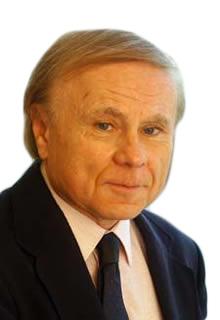I went over to the Occupy Boston encampment on Dewey Square one day in October. The atmosphere was upbeat. Several hundred people were organized in a free-wheeling, consensus-oriented way. There was already an on-site Free University in place. The protestors were amiable. Not the type of enterprise that anyone would anticipate to transform a major national debate in less than two months. But it has.
The Occupy Wall Street movement mirrors the national temper. It represents a general edginess toward dysfunctional democratic institutions. It condemns the massive deflection of capital from the poor and middle class to a small number, through regulatory and tax policies that have widened the breach between the wealthiest one percent and the 99 percent. Occupy Wall Street raises the question of whether U.S. capitalism is really able to fulfill the New Deal and Great Society pledges that constitute post-war liberalism.
Developed nations establish economic targets and then assess them for increased attainment without permitting general directives to become objectives in themselves. These nations understand that markets and governments are both vital. In the United States, though, the notion of public-private collaboration has atrophied. It functions as though, by itself, the private sector is sufficient in moving economic growth forward.
Yet this country has for years relied to a degree on transactions that take place mainly beyond the market structure. These involve access to education, as well as public pensions, some aspects of social security, and unemployment benefits. The market is incapable of delivering all the core necessities of a society.
Since 1979, the portion of pre-tax income accruing to the highest one percent of U.S. families has increased by seven percentage points, to 16 percent. During the same period, the portion of income accruing to the bottom 80 percent had declined by seven percentage points.
As transnational corporations thrive by utilizing advanced technology with low-cost labor, typical workers and their employers are left behind. This is one cause for median family incomes falling significantly behind productivity growth in America. The economic incentive of the current version of capitalism, as Lawrence Summers has pointed out, may well mean to transfer more assets to the wealthiest and some of the destitute, at the same time constricting those in the middle. After a long period in which ordinary workers have obtained a constantly shrinking portion of national revenues, the reaction against financial uncertainty produced by globalization will continue to intensify unless government confronts increasing inequality.
The Washington Consensus set out to create a favorable situation for the market economy and set forth the government’s major projects, such as fiscal policy management. Today though, what was taken as the near-omnipotence of the market looks different after the financial meltdown of 2008.
Given the current situation in which a fiscal contraction may be on the horizon, instead of setting up borders between private and public, we ought to take up a median position in order to discern the correct equilibrium among civil society, government and the market in the specific situation of globalization. Developing areas of the economy such as health care, education and clean technology require a cooperative arrangement of private and public economic development. We will need to focus on how to merge individual preferences into “society’s preferences,” when everyone’s preferences matter.
The Occupy movement’s thrust is about justice — justice as fairness. It strives to give voice to the pent-up anger of many Americans. This includes an electorate who realizes that those they vote for are attentive to the requirements of a constituency which is not their own, those who observe that the financial wizards whose schemes sank the economy do not have to bear responsibility, and students carrying debt for college degrees that do not result in employment. The movement throws light on the squalid partnership of Congress (to a great extent), K Street and Wall Street that has created the roadmap from the start of the financial meltdown.
For the first time in over 50 years, a wide range of people is talking about the concentration of political power and income among the top 0.1 percent. The corrupt relationship between politicians and financial clout is at the heart of the matter. And the excessive concentration of wealth is irreconcilable with authentic democracy.
Kenneth Keulman is a religious studies professor who teaches courses in ethics in international relations and public policy.He is currently on sabbatical at the Center for Government and International Studies at Harvard, where he is working on a book manuscript. He can be reached at kkeulman@loyno.edu

Local residents join in protest at the Occupy New Orleans event Oct 6. These protest are being organized nationally to challenge various issues. (Alex Davis/ The Maroon)


















